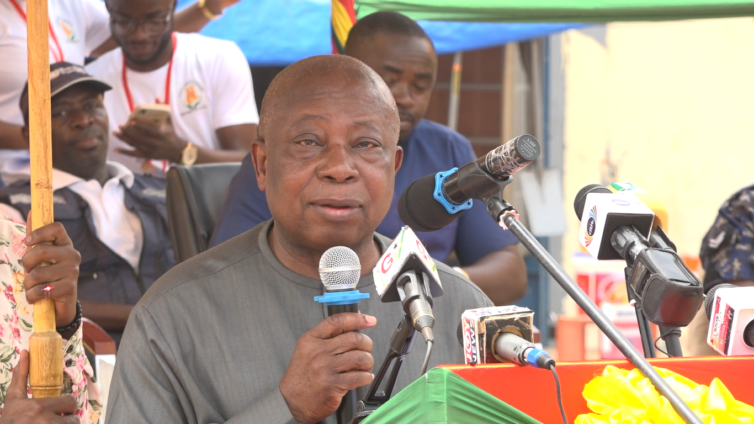Health Minister, Kwaku Agyeman-Manu, says Ghana has made significant progress in the fight against malaria.
According to him, for over a decade, the country has been able to reduce malaria deaths by 96% in 2022 using 2008 as a baseline.
“Malaria related deaths at all ages reduced from 3,889 in the year 2008 to 155 by the end of 2022 which is about a 96% reduction,” he said.
He made these comments at the launch of the National Malaria Elimination Strategic Plan on January 16, 2024.
Mr Agyeman-Manu explained that the country was able to achieve these strides through the implementation of the elimination programme which included the malaria case management guidelines, running laboratory diagnoses of malaria and conducting supervisory visit to public and private health.
“The National Malaria Elimination Programme was established to reduce malaria morbidity and mortality rate by 75% by 2020, using 2012 as a baseline.
"Some of the key interventions and strategies implemented by the elimination programme include distributing long-lasting insecticidal nets nationwide through health facilities, communities and schools; rolling out guidelines for malaria case management, malaria in pregnancy, laboratory diagnoses of malaria and anti-malaria drug policy in all our regions.
"Conducting supervisory visits to public and private health monthly data review, retain data quality audit and monitoring of activities of epidemiological sentinel site,” he added.
Meanwhile, as part of efforts to completely eradicate malaria in Ghana, the government launched the National Malaria Elimination Strategic Plan.
The plan aims at reducing malaria mortality by 90% by the year 2028, and to reduce malaria incident by 50% going into 2028.
Mr Agyeman-Manu expressed his optimism in Ghana’s capacity to eradicate the disease citing the successes of the national malaria programme
Director General of the Ghana Health Service, Dr Patrick Kumah-Aboagye said there was a need to completely eradicate the disease like other countries have done.
“The disease imposes a heavy economic burden on households, the health system and the national economy. Malaria related illness and death leads to loss of productivity, absenteeism from work and school increased health care costs as well as personal costs. This can result in reduced economic growth and development,” he added.
Latest Stories
-
Mahama vows to create an agro-processing zone in Afram Plains
11 mins -
Political parties should plan for losses, not just wins – IGP advises
13 mins -
524 Diasporan Africans granted Ghanaian citizenship in ceremony
14 mins -
Mahama urges Afram Plains North residents to avoid ‘skirt and blouse’ voting
16 mins -
Asantehene receives more 19th century gold ornament and regalia
23 mins -
Hohoe Ghana Blind Union organises training for members ahead of Election 2024
30 mins -
Alan Kyerematen reveals his future plans for Ghanaian Health professionals
31 mins -
AAIN empowers women and small enterprises in Upper East Region through SHINE project
32 mins -
Akufo-Addo leads nationwide commissioning of 80 educational projects
38 mins -
Ghana and Seychelles strengthen bilateral ties with focus on key sectors
1 hour -
National Elections Security Taskforce meets political party heads ahead of December elections
1 hour -
Samsung’s AI-powered innovations honored by Consumer Technology Association
2 hours -
Fugitive Zambian MP arrested in Zimbabwe – minister
2 hours -
Town council in Canada at standstill over refusal to take King’s oath
2 hours -
Trump picks Pam Bondi as attorney general after Matt Gaetz withdraws
2 hours

